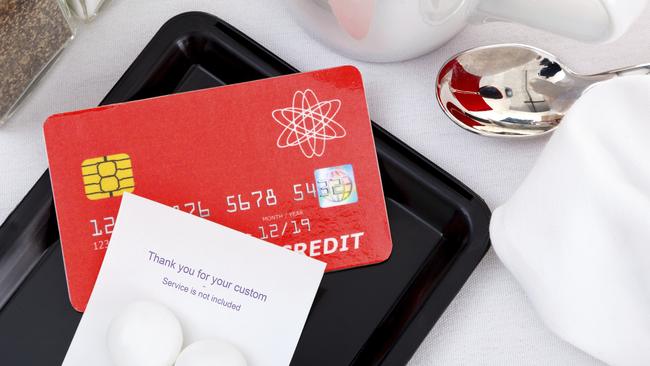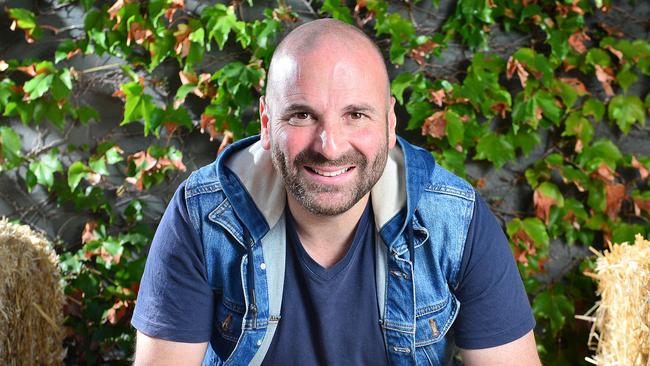Tipping will be our new normal if we don’t fix penalty rates
As the government continues to hack away at penalty rates, it’s time for Australia to face the prospect of following the US tip economy and paying even more for the services we love, writes Bianca O’Neill.
On the same day that he received a two per cent pay rise, Prime Minister Scott Morrison welcomed yet another reduction in penalty rates workers, part of a plan to reduce weekend penalties by up to 45 per cent by 2020.
As retail, hospitality and other shift workers have their penalty rates slowly eroded over time, Australia is at increasing risk of becoming a tip economy, like the US.
Last week on a trip to Los Angeles, I spent a lot of time thinking about the depressing state of the tipping economy, and how rather than be subjected to the frustrating and inconvenient practice of adding a percentage onto the bill (often after tax has already been applied), I’d prefer instead to simply see the additional cost of minimal wages added to the prices in the first place.
As per US law, 16 states have a parallel minimum wage of just $2.13 per hour. Known as the “tipped minimum wage”, workers earning this amount are required to make up the rest of their wage with the uncertainty of generous customers who aren’t required to tip. Then combined with rampant reports of restaurant owners taking tips from workers, it makes for a truly uncertain income.
MORE FROM BIANCA O’NEILL: Forget FOMO, this year it’s all about JOMO
$2.13 per hour is damn close to slave labour. And if a restaurant can’t make a profit without paying their staff a decent wage, then quite frankly, they shouldn’t be in the restaurant business.

For those who argue that the tip economy increases customer satisfaction and incentivises better service? Well, that’s been proven time and again as nothing more than an urban legend. Would you love your job if you were getting paid $2.13 per hour?
Consider this: a table for two at a standard restaurant usually comes to around $80. Add 20 per cent, and you come to around $100. That $20 could alone pay for the server’s minimum wage that hour. The resistance from restaurants, citing meal affordability, just doesn’t stack up.
In Australia, we have a minimum wage of $18.93 per hour with penalty loading for Saturdays and Sundays, but these penalty rates are continually being eroded by the government. Retail employees, for example, who were previously paid double time on Sundays, will have their loading slashed by 50 per cent by 2020.
MORE FROM BIANCA O’NEILL: This isn’t a hate crime, it’s just a pretty dress
The removal of penalty rates tells our more vulnerable workers (usually students and casual workers) that their rights aren’t as important as other people’s. That missing important moments, like family birthdays or their children’s soccer game, is not worth enough to the government to be compensated for it.
It also puts the onus on consumers, who often feel increasingly guilty about the shrinking wages of hospitality workers, to make up the difference in tips.
And though, in comparison with the US, Australia’s minimum wage is one of the strongest regulated minimum wages in the world, hospitality workers and casual staff are still routinely stiffed out of their legal rights — despite the legislation.

Similar to the US, we’ve had our fair share of wage theft. Famously, TV personality and restaurateur George Calombaris, was exposed for $2.6 million worth of wage theft in 2017, having underpaid 162 staff over six years. Just this year, a 7-Eleven operator was found guilty and fined $335,000 for wage theft, paying his staff as little as $3.98 per hour.
Add to these issues the rampant uptake of American companies like Uber, and the Sydney-based Airtasker, moving Australia toward an increasingly insecure gig economy, there’s even less control over worker’s pay rates.
MORE FROM BIANCA O’NEILL: Nothing prepared me for the experience of freezing my eggs
Of course, this is often about the government valuing certain jobs as less important than others — after all, traditional ‘white collar’ jobs don’t depend on penalty rates, nor do they force workers to regularly work weekends and nights. Traditional office jobs in Australia are still heavily steeped in the 9-5 standard.
Until we pressure our government to halt the constant chipping away at our country’s lowest wage earners — a government headed by a Prime Minister who has voted eight times to cut penalty rates in the last two years alone — we doom ourselves to becoming more like America’s appalling tip economy by the day.
Bianca O’Neill is a freelance writer and columnist.


